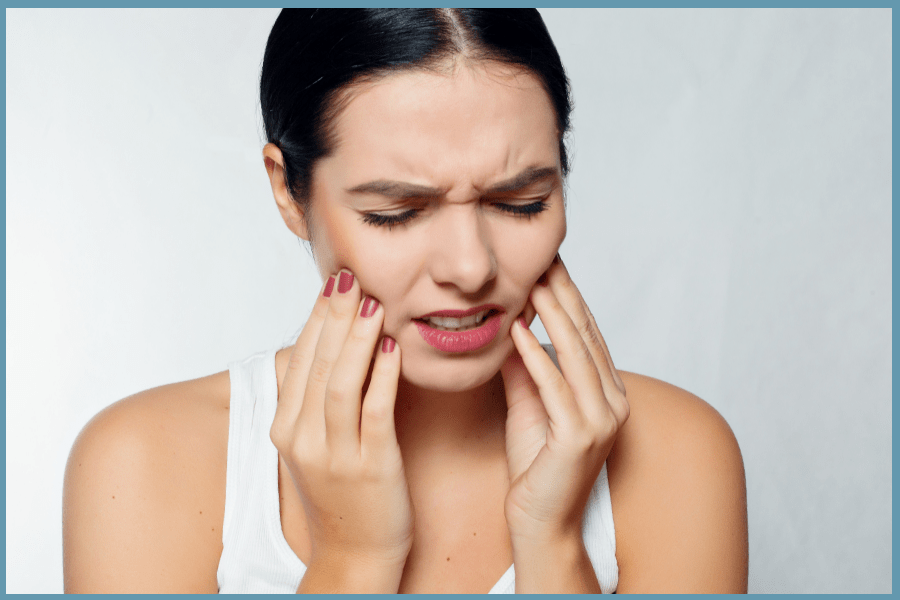Teeth whitening has become increasingly popular in recent years as more and more people seek to achieve that perfect, dazzling smile. Unfortunately, while the results can be impressive, it’s common for individuals to experience pain after teeth whitening treatments. This discomfort can range from mild sensitivity to more severe, throbbing pain, leaving many to wonder why their teeth are killing them after whitening.
Let’s explore the causes of tooth pain after whitening and provide helpful relief tips to ease the discomfort and allow you to enjoy your newly brightened smile.
Tooth Pain After Whitening: Uncovering the Causes and Soothing the Discomfort

Before we dive into the specific strategies for soothing tooth pain after whitening, it’s essential to understand the underlying causes. By understanding what might contribute to your discomfort, you can better target the issue and find relief.
The three primary culprits behind post-whitening tooth pain are:
1. Sensitive Teeth: When Whitening Leads to Tender Teeth
The whitening process often involves using peroxide-based agents that penetrate the tooth enamel to remove stains. This penetration can expose the underlying layer of the tooth called dentin, which contains tiny tubules connected to the tooth’s nerves.
As a result, when the dentin is exposed, it becomes more susceptible to external stimuli, as well as the following consequences:
- Increased teeth sensitivity to hot and cold foods and beverages
- Pain or discomfort when biting or chewing
- Sensitivity while brushing or flossing
- A higher risk of developing tooth decay or cavities
- Potential for gum recession and periodontal issues
2. Gum Irritation: The Unwanted Side Effect of Whitening Treatments
Whitening agents, such as hydrogen peroxide or carbamide peroxide, are designed to be safe for teeth but can irritate delicate gum tissue. When these chemicals come into contact with the gums, they may cause redness, swelling, or even a burning sensation, leading to discomfort.
Ill-fitting teeth whitening strips or trays used for at-home whitening treatments can also exacerbate gum irritation.
Moreover, when these devices don’t fit properly, they may allow the whitening agent to spread onto the gums or concentrate the product in specific areas, increasing the likelihood of irritation and discomfort.
3. Pre-Existing Dental Issues: The Hidden Factor in Post-Whitening Pain
Before undergoing whitening treatments, addressing any pre-existing dental issues is essential, as they can contribute to post-whitening pain.
Some common dental problems that can exacerbate pain include:
- Cavities: Untreated cavities can allow the whitening agents to seep into the tooth’s inner layers, causing increased sensitivity and discomfort. If you’re wondering, ‘Can you reverse a cavity?‘ early-stage cavities can sometimes be managed with fluoride treatments, but advanced cavities require professional dental care.”
- Cracked teeth: Cracks in teeth can expose the dentin or even the tooth’s pulp, intensifying the effects of the whitening treatment and leading to heightened pain.
- Worn enamel: Thinning enamel can make teeth more susceptible to the effects of whitening treatments, potentially increasing sensitivity and pain.
- Gum disease: Inflamed or receding gums can expose tooth roots, which, when subjected to whitening treatments, can cause severe discomfort.
- Bruxism (teeth grinding): Grinding your teeth can lead to worn enamel or cracks, making teeth more sensitive to whitening treatments and resulting in increased pain.
Soothing Strategies: How to Alleviate Tooth Pain After Whitening

Now that we’ve explored the causes of tooth pain after whitening, let’s dive into effective strategies to alleviate discomfort and help you enjoy the benefits of your brightened smile.
From home remedies to professional dental care, we’ll provide practical tips for relief and prevention.
At-Home Remedies: Quick and Easy Solutions for Post-Whitening Discomfort
If you’re experiencing tooth pain after whitening, there are several at-home remedies you can try to alleviate discomfort:
- Sensitivity toothpaste: Sensitivity toothpaste is specially formulated to reduce teeth sensitivity by blocking pain signals from exposed dentin. Look for toothpaste that contains ingredients such as potassium nitrate or strontium chloride, and use it daily for at least two weeks to notice a reduction in sensitivity.
- Over-the-counter pain relievers: Ibuprofen, acetaminophen, or aspirin can temporarily relieve tooth pain. Follow the recommended dosage and consult a healthcare professional if you need more clarification.
- Warm saltwater rinse: A warm saltwater rinse can help reduce inflammation and alleviate discomfort. Mix 1/2 teaspoon of salt in a cup of warm water and swish the solution around your mouth for 30 seconds before spitting it out.
- Avoiding extreme temperatures in food and drink: To avoid triggering sensitivity, consume lukewarm beverages and avoid acidic foods. Give your teeth time to recover before introducing hot or cold items into your diet.
Seeking Professional Dental Care: When It’s Time to Consult a Dentist
If your tooth pain after whitening is severe or persistent, it may be time to consult a dental professional. A dentist can diagnose and treat underlying issues contributing to your pain.
Here are some potential treatments:
- Fluoride gel: A dentist may apply a bleaching gel to your teeth to help reduce sensitivity and strengthen enamel.
- Desensitizing agents: Desensitizing toothpaste, such as potassium nitrate or fluoride varnish, can be applied to your teeth to help reduce sensitivity.
Preventive Measures: Steps to Reduce Pain Before and After Teeth Whitening Treatment
To prevent tooth pain after whitening, take the following preventive measures:
- Using custom-fitted trays or strips can help prevent the whitening agent from contacting your gums, reducing the risk of irritation.
- Always follow the instructions provided with your whitening product to avoid overuse and potential side effects.
- Gradually increasing the duration and frequency of whitening treatments help your teeth acclimate to the process and reduce the risk of sensitivity and pain.
Say Goodbye to Tooth Pain After Whitening

Remember, if your tooth pain persists or worsens, it’s crucial to seek professional dental care. A dental professional can diagnose and treat any underlying issues contributing to your pain, ensuring the overall health of your teeth and gums.
At Eric Batterton, DDS, we understand the advantages of whitening teeth. So, if you’re experiencing tooth pain after whitening or have any other dental concerns, such as teeth discoloration, don’t hesitate to schedule an appointment with us. Dr. Batterton is dedicated to making sure that your teeth whitening procedure or any other dental procedure is painless and convenient, giving you a healthy, beautiful smile.
